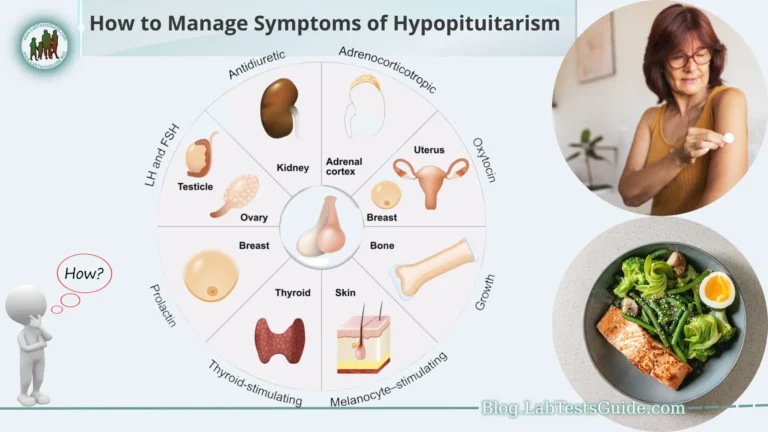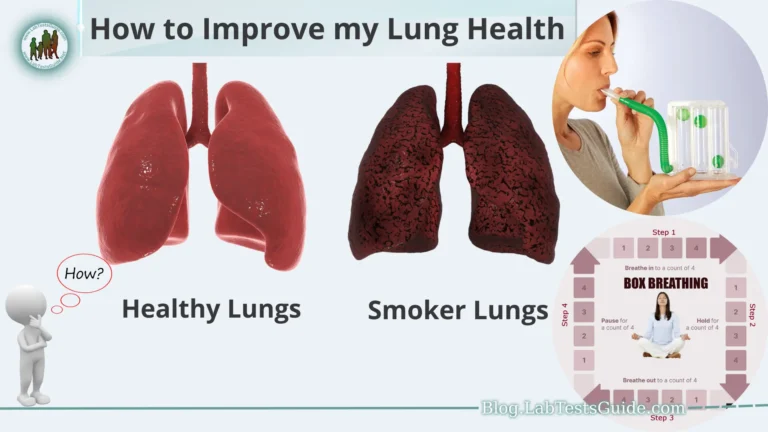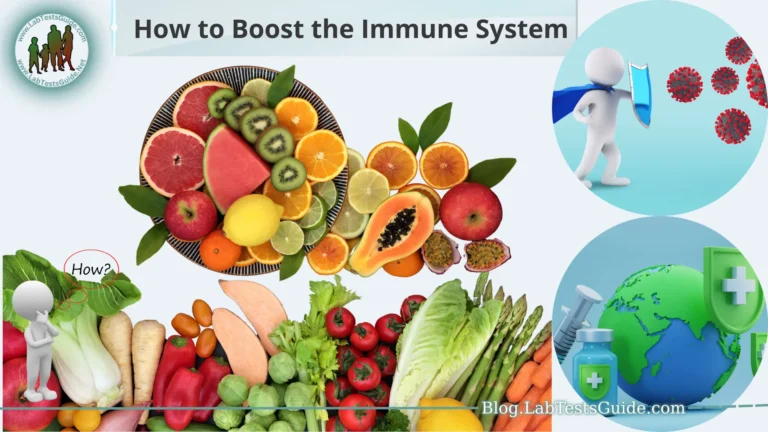Heart disease, also known as cardiovascular disease, is a leading cause of morbidity and mortality worldwide. It encompasses a range of conditions affecting the heart and blood vessels, including coronary artery disease, heart failure, arrhythmias, and more. While some risk factors for heart disease are beyond our control, such as age and family history, adopting a heart-healthy lifestyle can significantly reduce the likelihood of developing this life-threatening condition. This comprehensive guide aims to provide essential information and practical tips on how to prevent heart disease, empowering individuals to make informed choices and take proactive steps towards safeguarding their heart health.

As we delve into the various aspects of heart disease prevention, we will explore the significance of knowing individual risk factors and understanding the impact of lifestyle choices on cardiovascular health. Emphasizing the importance of a balanced diet, regular physical activity, stress management, and other key factors, this guide equips readers with the knowledge needed to make positive changes that can lead to a healthier heart and a longer, more fulfilling life. By embracing these preventive measures, we can pave the way for a future where heart disease becomes increasingly preventable, reducing the burden it places on individuals, families, and healthcare systems alike.
What is Heart Disease?
- Definition: Heart disease, also known as cardiovascular disease, is a group of conditions that involve the heart and blood vessels, impacting their ability to pump blood effectively.
- Types: There are different types of heart diseases, including coronary artery disease, heart failure, arrhythmias (abnormal heart rhythms), valvular heart disease, and congenital heart defects.
- Coronary Artery Disease (CAD): The most common form of heart disease, CAD occurs when the arteries that supply blood to the heart muscle become narrowed or blocked due to a buildup of plaque.
- Heart Failure: Heart failure happens when the heart cannot pump blood efficiently, leading to reduced blood flow to the body’s organs and tissues.
- Arrhythmias: These are irregular heart rhythms that may cause the heart to beat too fast, too slow, or irregularly, affecting its ability to pump blood effectively.
- Valvular Heart Disease: This condition involves problems with the heart’s valves, which control blood flow in and out of the heart chambers.
- Congenital Heart Defects: These are structural abnormalities present at birth, affecting the heart’s structure and function.
- Risk Factors: Several risk factors increase the likelihood of developing heart disease, including age, family history, high blood pressure, high cholesterol levels, smoking, diabetes, obesity, and physical inactivity.
- Symptoms: Symptoms of heart disease may vary depending on the specific condition but can include chest pain, shortness of breath, fatigue, palpitations, dizziness, and swelling in the legs and ankles.
- Prevention: Adopting a heart-healthy lifestyle, including a balanced diet, regular exercise, avoiding smoking, managing stress, and maintaining a healthy weight, can significantly reduce the risk of heart disease.
- Diagnosis: Diagnosis of heart disease often involves a combination of medical history, physical examination, blood tests, electrocardiogram (ECG or EKG), echocardiogram, stress tests, and cardiac catheterization.
- Treatment: Treatment options for heart disease depend on the specific condition and severity but may include lifestyle changes, medications, medical procedures, and surgery.
- Importance of Early Intervention: Early detection and timely management of heart disease are crucial for better outcomes and improved quality of life. Regular health checkups and screenings are essential for early intervention.
How to Maintain a Heart-Healthy Diet:
Here are some key strategies and guidelines to help you adopt a heart-healthy eating plan.
- Emphasize Fruits and Vegetables: Aim to include a variety of colorful fruits and vegetables in your diet. They are rich in vitamins, minerals, antioxidants, and dietary fiber, which support heart health and reduce the risk of heart disease.
- Choose Whole Grains: Opt for whole grains like whole wheat, brown rice, quinoa, oats, and barley instead of refined grains. Whole grains contain more fiber and nutrients, helping to lower cholesterol levels and improve heart function.
- Prioritize Healthy Fats: Replace saturated and trans fats with healthy fats such as monounsaturated and polyunsaturated fats. Sources of healthy fats include avocados, nuts, seeds, olive oil, and fatty fish like salmon, mackerel, and trout.
- Limit Saturated and Trans Fats: Reduce the consumption of foods high in saturated and trans fats, such as fatty meats, full-fat dairy products, fried foods, and commercially baked goods. These fats can raise cholesterol levels and increase the risk of heart disease.
- Incorporate Lean Proteins: Choose lean protein sources like skinless poultry, fish, legumes, tofu, and low-fat dairy. Limit red meat consumption and opt for lean cuts when you do eat meat.
- Control Portion Sizes: Be mindful of portion sizes to avoid overeating, which can lead to weight gain and other risk factors for heart disease.
- Reduce Sodium Intake: Limit the amount of salt in your diet to help control blood pressure. Avoid processed and packaged foods high in sodium and use herbs and spices to add flavor to your meals instead.
- Moderate Alcohol Consumption: If you choose to drink alcohol, do so in moderation. For men, this means up to two drinks per day, and for women, one drink per day. Excessive alcohol consumption can have adverse effects on heart health.
- Be Cautious with Added Sugars: Minimize your intake of sugary foods and beverages, as excessive sugar consumption is associated with an increased risk of heart disease and obesity.
- Stay Hydrated: Drink plenty of water throughout the day and limit sugary beverages and excessive caffeine.
- Be Mindful of Trans Fats: Check food labels and avoid products containing trans fats, as they can raise bad cholesterol levels and increase heart disease risk.
- Plan Balanced Meals: Aim for balanced meals that include a mix of lean proteins, healthy fats, whole grains, and a variety of fruits and vegetables.
Know Your Risk Factors:
Here are some key risk factors to be aware of.
- Age and Gender: The risk of heart disease increases with age, and men generally have a higher risk than premenopausal women. However, after menopause, women’s risk catches up with men.
- Family History: If you have a family history of heart disease, particularly in close relatives like parents or siblings, your risk may be higher due to genetic factors.
- High Blood Pressure (Hypertension): Elevated blood pressure puts added strain on the heart and blood vessels, increasing the risk of heart disease and other cardiovascular complications.
- High Cholesterol Levels: High levels of LDL cholesterol (“bad” cholesterol) and low levels of HDL cholesterol (“good” cholesterol) can lead to plaque buildup in the arteries, narrowing them and raising the risk of heart disease.
- Smoking and Tobacco Use: Smoking and exposure to secondhand smoke can damage blood vessels, increase blood pressure, and promote the formation of blood clots, all of which contribute to heart disease risk.
- Physical Inactivity: Lack of regular physical activity is associated with various risk factors, such as obesity, high blood pressure, and unhealthy cholesterol levels, which collectively increase the risk of heart disease.
- Obesity and Overweight: Excess body weight, especially around the waist, can lead to various risk factors for heart disease, including high blood pressure, diabetes, and abnormal cholesterol levels.
- Diabetes and Insulin Resistance: Diabetes and insulin resistance are closely linked to an increased risk of heart disease, as they can damage blood vessels and contribute to atherosclerosis.
- Unhealthy Diet: A diet high in saturated and trans fats, sodium, and added sugars, and low in fruits, vegetables, whole grains, and healthy fats, can raise the risk of heart disease.
- Stress and Mental Health: Chronic stress, depression, and anxiety can affect heart health by elevating blood pressure and contributing to unhealthy coping behaviors like overeating or smoking.
Healthy Diet for Heart Health:
Here are some key principles to follow for a heart-healthy diet.
- The Mediterranean Diet: Consider adopting the Mediterranean diet, which emphasizes fruits, vegetables, whole grains, nuts, seeds, and olive oil. This diet is rich in heart-protective nutrients and healthy fats.
- DASH Diet (Dietary Approaches to Stop Hypertension): The DASH diet focuses on reducing sodium intake and increasing potassium-rich foods, such as fruits and vegetables, to help manage blood pressure and improve heart health.
- Importance of Fruits and Vegetables: Incorporate a variety of colorful fruits and vegetables into your daily meals. They are packed with vitamins, minerals, antioxidants, and dietary fiber that benefit heart health.
- Whole Grains and Fiber: Choose whole grains like brown rice, quinoa, oats, and whole wheat over refined grains. Whole grains are high in fiber, which can help lower cholesterol levels and improve heart function.
- Lean Proteins and Fish: Opt for lean protein sources like skinless poultry, fish, legumes, and tofu. Fatty fish, such as salmon, mackerel, and trout, are excellent sources of omega-3 fatty acids that promote heart health.
- Healthy Fats and Oils: Replace saturated and trans fats with healthy fats, such as those found in avocados, nuts, seeds, and olive oil. These fats can help improve cholesterol levels and reduce inflammation in the body.
- Limit Added Sugars and Salt: Minimize your intake of sugary foods and beverages, as well as foods high in added salt. Excess sugar and salt can contribute to high blood pressure and other heart disease risk factors.
- The Role of Alcohol: If you drink alcohol, do so in moderation. For men, this means up to two drinks per day, and for women, one drink per day. Excessive alcohol consumption can have adverse effects on heart health.
- Proper Hydration: Stay hydrated by drinking plenty of water throughout the day. Limit the consumption of sugary beverages and excessive caffeine.
- Portion Control: Be mindful of portion sizes to avoid overeating, which can lead to weight gain and other risk factors for heart disease.
Regular Physical Activity:
Here are some key points about the importance of regular physical activity.
- Cardiovascular Benefits: Physical activity helps strengthen the heart muscle, improve circulation, and enhance the efficiency of the cardiovascular system. It can lower the risk of developing heart disease by reducing the likelihood of high blood pressure, high cholesterol levels, and atherosclerosis (narrowing of the arteries).
- Weight Management: Regular exercise is essential for weight management and maintaining a healthy body weight. Obesity and excess weight are risk factors for heart disease, so maintaining a healthy weight can significantly reduce the risk.
- Improves Cholesterol Levels: Physical activity can increase the levels of high-density lipoprotein (HDL) cholesterol, also known as “good” cholesterol, which helps remove excess cholesterol from the blood vessels. This can lead to a decrease in low-density lipoprotein (LDL) cholesterol, commonly referred to as “bad” cholesterol.
- Reduces Blood Pressure: Regular exercise can help lower blood pressure, which is a significant risk factor for heart disease and stroke.
- Manages Diabetes: Physical activity improves insulin sensitivity, helping to manage and prevent type 2 diabetes. Diabetes is a risk factor for heart disease, so managing blood sugar levels is essential for heart health.
- Promotes Healthy Blood Vessels: Exercise improves the function and flexibility of blood vessels, reducing the risk of arterial stiffness and promoting better blood flow.
- Enhances Mood and Reduces Stress: Physical activity releases endorphins, which are natural mood lifters, and helps reduce stress and anxiety levels. Lowering stress is beneficial for heart health as chronic stress can negatively impact the cardiovascular system.
- Builds Strength and Endurance: Regular exercise improves muscular strength and endurance, which can enhance overall physical performance and stamina.
- Types of Exercise: Aerobic exercises like brisk walking, jogging, cycling, swimming, and dancing are excellent for cardiovascular health. Additionally, strength training exercises, such as weightlifting or bodyweight exercises, can improve muscle strength and bone health.
- Safety and Consistency: It’s essential to choose activities that match your fitness level and health status. Start with low-impact exercises and gradually increase intensity and duration. Consistency is key; aim for at least 150 minutes of moderate-intensity exercise or 75 minutes of vigorous-intensity exercise per week, along with muscle-strengthening activities on two or more days per week.
Quit Smoking and Avoid Secondhand Smoke:
Here are some key points about quitting smoking and avoiding secondhand smoke.
- Impact of Smoking on Heart Health: Smoking is a major risk factor for heart disease. It damages the blood vessels, increases blood pressure, reduces oxygen levels, and contributes to the development of atherosclerosis (narrowing and hardening of the arteries).
- Risks of Secondhand Smoke: Secondhand smoke contains numerous harmful chemicals that can be inhaled by non-smokers. Breathing in secondhand smoke can raise the risk of heart disease, stroke, and other health issues in non-smokers, especially in children and individuals with pre-existing heart conditions.
- Benefits of Quitting: The benefits of quitting smoking start almost immediately. Within minutes to hours, heart rate and blood pressure begin to decrease. Within days to weeks, lung function improves, and circulation gets better. Within months to years, the risk of heart disease decreases significantly, and the overall risk of premature death decreases.
- Cessation Resources: If you smoke, seek support to quit. Many resources are available, including counseling, support groups, nicotine replacement therapies (such as patches, gum, or lozenges), prescription medications, and mobile apps designed to help individuals quit smoking.
- Avoiding Secondhand Smoke: If you don’t smoke, make an effort to avoid places where smoking is allowed, especially indoors. Encourage family members, friends, and colleagues to quit smoking to protect their own health and yours.
- Supportive Environment: Create a smoke-free environment in your home and car to protect yourself and your loved ones from exposure to secondhand smoke.
- Stay Committed: Quitting smoking can be challenging, and relapses are common. Don’t be discouraged if you experience setbacks. Stay committed to your goal of quitting and seek support to help you succeed.
- Improved Heart Health: Quitting smoking is one of the most significant positive changes you can make for your heart health. Within a few years of quitting, the risk of heart disease can decrease to a level similar to that of a non-smoker.
- Seek Professional Help: If you find it difficult to quit on your own, consider reaching out to a healthcare provider or a smoking cessation specialist for personalized guidance and support.
Manage Stress and Mental Health:
Here are some key points about managing stress and prioritizing mental health.
- Impact of Stress on Heart Health: Chronic stress can lead to increased blood pressure, elevated heart rate, and the release of stress hormones like cortisol, which can negatively affect the cardiovascular system.
- Identify Stress Triggers: Recognize the sources of stress in your life and identify specific triggers. This awareness can help you develop strategies to cope with and manage stress effectively.
- Stress Management Techniques: Adopt stress-reducing techniques such as mindfulness meditation, deep breathing exercises, progressive muscle relaxation, yoga, or tai chi. These practices can help calm the mind and promote relaxation.
- Regular Physical Activity: Engaging in regular exercise is an excellent way to manage stress and improve mood. Physical activity stimulates the release of endorphins, which are natural mood enhancers.
- Social Support: Build a support system of family, friends, or support groups to share your feelings and concerns. Social connections can provide comfort and encouragement during challenging times.
- Set Realistic Goals: Avoid overwhelming yourself with excessive commitments and responsibilities. Set realistic goals and prioritize tasks to avoid unnecessary stress.
- Time Management: Organize your schedule and allocate time for essential activities and relaxation. Effective time management can reduce stress by allowing you to balance work, personal life, and self-care.
- Limit Negative Self-Talk: Replace negative self-talk with positive affirmations. Practice self-compassion and be kind to yourself during difficult times.
- Seek Professional Help: If stress or mental health concerns become overwhelming, seek help from a mental health professional. Therapy and counseling can provide valuable support and guidance.
- Engage in Enjoyable Activities: Make time for activities that bring joy and relaxation. Hobbies, creative pursuits, or spending time in nature can be beneficial for mental well-being.
- Practice Mindful Eating: Be mindful of your eating habits and avoid using food as a coping mechanism for stress. Instead, focus on nourishing your body with a balanced and nutritious diet.
- Get Adequate Sleep: Prioritize sleep and establish a regular sleep routine. Lack of sleep can contribute to stress and impact heart health.
Regular Health Checkups and Screening Tests:
Here are some key points about the importance of regular health checkups and screening tests.
- Early Detection: Regular health checkups allow healthcare providers to identify health concerns at an early stage when they may be easier to manage and treat. Detecting risk factors and early signs of heart disease can lead to timely interventions, reducing the risk of complications.
- Personalized Assessment: During health checkups, your healthcare provider will assess your individual health status, medical history, lifestyle habits, and family history. This information helps tailor preventive recommendations based on your specific needs and risk factors.
- Blood Pressure Monitoring: Checking blood pressure regularly is crucial for detecting high blood pressure (hypertension), a significant risk factor for heart disease and stroke.
- Cholesterol Screening: Regular cholesterol testing measures levels of LDL (low-density lipoprotein) and HDL (high-density lipoprotein) cholesterol. Elevated LDL cholesterol is associated with an increased risk of heart disease.
- Blood Sugar Testing: Monitoring blood sugar levels is essential for detecting diabetes or prediabetes, which are risk factors for heart disease.
- Weight and Body Mass Index (BMI) Monitoring: Regularly tracking weight and BMI helps assess whether weight management is necessary to reduce heart disease risk.
- Other Heart Disease Risk Factors: Health checkups may also include assessing other heart disease risk factors, such as smoking status, physical activity levels, diet, and stress.
- Age-Appropriate Screenings: Depending on your age and risk factors, your healthcare provider may recommend additional screenings, such as electrocardiogram (ECG or EKG) to assess heart function or a stress test to evaluate heart performance during exercise.
- Follow-Up Care: Regular health checkups allow for follow-up care and evaluation of the effectiveness of preventive measures or treatments.
- Prevention and Health Promotion: Health checkups are not only about identifying health issues but also about promoting healthy behaviors and preventive strategies to maintain good health.
- Personal Responsibility: Taking responsibility for your health and participating in regular checkups empower you to actively manage your well-being and make informed decisions about your health.
- Early Intervention: Early detection of heart disease risk factors or conditions allows for timely intervention and lifestyle modifications that can significantly impact heart health and prevent complications.
Limit Alcohol Consumption:
Here are some key points about the importance of limiting alcohol consumption.
- Definition of Moderate Drinking: Moderate alcohol consumption is generally defined as up to one drink per day for women and up to two drinks per day for men. One drink is equivalent to approximately 14 grams of pure alcohol.
- Potential Health Benefits: Some studies suggest that moderate alcohol intake, particularly red wine, may have potential cardiovascular benefits due to its antioxidant content and effects on certain biomarkers. However, these potential benefits are not unique to alcohol and can be obtained through other dietary choices.
- Risks of Excessive Drinking: Excessive alcohol consumption is associated with numerous health risks, including liver disease, addiction, mental health issues, increased risk of accidents and injuries, and an increased risk of developing heart disease.
- Impact on Heart Health: Heavy drinking can raise blood pressure and contribute to abnormal heart rhythms, cardiomyopathy (enlarged heart), and damage to the heart muscle. Chronic excessive alcohol consumption can weaken the heart and lead to heart failure.
- Effect on Cholesterol Levels: Alcohol consumption can raise levels of triglycerides (a type of fat) in the blood, which may contribute to an increased risk of heart disease.
- Weight Gain: Alcoholic beverages are often high in calories and can contribute to weight gain when consumed in excess. Obesity is a risk factor for heart disease.
- Interaction with Medications: Alcohol can interact negatively with various medications, reducing their effectiveness or causing harmful side effects.
- Personal Tolerance: Individual tolerance to alcohol varies based on factors like genetics, age, body weight, and overall health. Some individuals may be more sensitive to the effects of alcohol than others.
- Be Mindful of Alcohol Content: Different types of alcoholic beverages contain varying amounts of alcohol. Be aware of the alcohol content in the drinks you consume and monitor your intake accordingly.
- Know Your Limits: If you choose to drink alcohol, do so in moderation and know your limits. Avoid binge drinking, which is defined as consuming a large amount of alcohol in a short period.
FAQs:
What is heart disease?
Heart disease, also known as cardiovascular disease, refers to a group of conditions that affect the heart and blood vessels, impairing their normal function. It includes conditions such as coronary artery disease, heart failure, arrhythmias, and valvular heart disease.
What are the risk factors for heart disease?
Several risk factors increase the likelihood of developing heart disease, including age, family history, high blood pressure, high cholesterol levels, smoking, diabetes, obesity, physical inactivity, stress, and unhealthy diet.
How can I prevent heart disease?
Heart disease prevention involves adopting a heart-healthy lifestyle. This includes maintaining a balanced diet, engaging in regular physical activity, avoiding smoking and secondhand smoke, managing stress, maintaining a healthy weight, limiting alcohol consumption, and getting regular health checkups.
What is a heart-healthy diet?
A heart-healthy diet emphasizes fruits, vegetables, whole grains, nuts, seeds, and healthy fats while limiting saturated and trans fats, added sugars, and excessive salt. The Mediterranean and DASH diets are excellent examples of heart-healthy eating plans.
How much exercise should I do for heart health?
Aim for at least 150 minutes of moderate-intensity exercise or 75 minutes of vigorous-intensity exercise per week, along with muscle-strengthening activities on two or more days per week.
Can stress affect heart health?
Yes, chronic stress can have negative effects on the cardiovascular system, increasing the risk of heart disease. Managing stress through relaxation techniques and healthy coping mechanisms is important for heart health.
How does smoking impact heart health?
Smoking damages blood vessels, raises blood pressure, and contributes to the development of atherosclerosis, increasing the risk of heart disease. Quitting smoking is essential for heart health.
What are the benefits of regular health checkups and screenings?
Regular health checkups and screenings help identify potential risk factors and detect early signs of health issues, allowing for timely intervention and treatment to prevent complications.
Is alcohol consumption linked to heart disease?
Excessive alcohol consumption can raise blood pressure, contribute to abnormal heart rhythms, weaken the heart muscle, and increase the risk of heart disease. Moderation is key if alcohol is consumed.
Can heart disease be reversed?
While heart disease cannot be completely reversed, adopting a heart-healthy lifestyle can slow its progression, reduce symptoms, and lower the risk of complications. Early detection and management are essential for better outcomes.
Conclusion:
In conclusion, preventing heart disease is of paramount importance for maintaining a healthy and fulfilling life. Heart disease, encompassing various cardiovascular conditions, remains a leading cause of morbidity and mortality worldwide. However, through proactive measures and lifestyle choices, we can significantly reduce the risk of heart disease and promote heart health. This comprehensive guide has highlighted the key aspects of heart disease prevention. It emphasizes the significance of knowing individual risk factors, adopting a heart-healthy diet, engaging in regular physical activity, avoiding smoking and secondhand smoke, managing stress, maintaining a healthy weight, limiting alcohol consumption, and getting regular health checkups and screenings.






